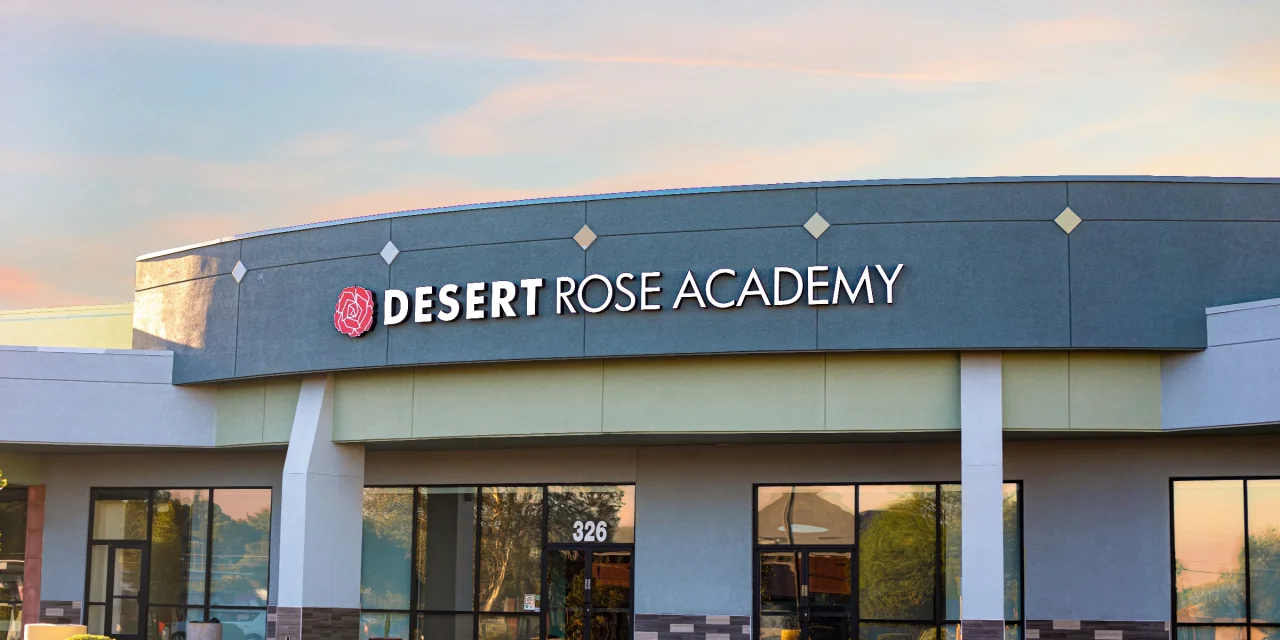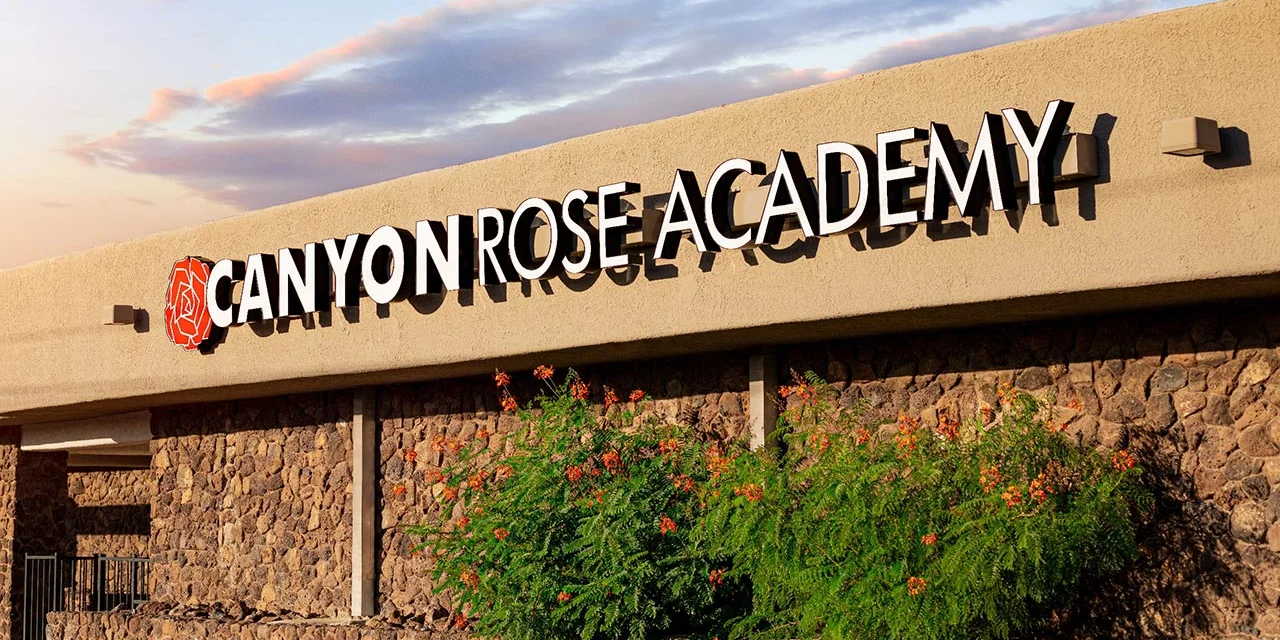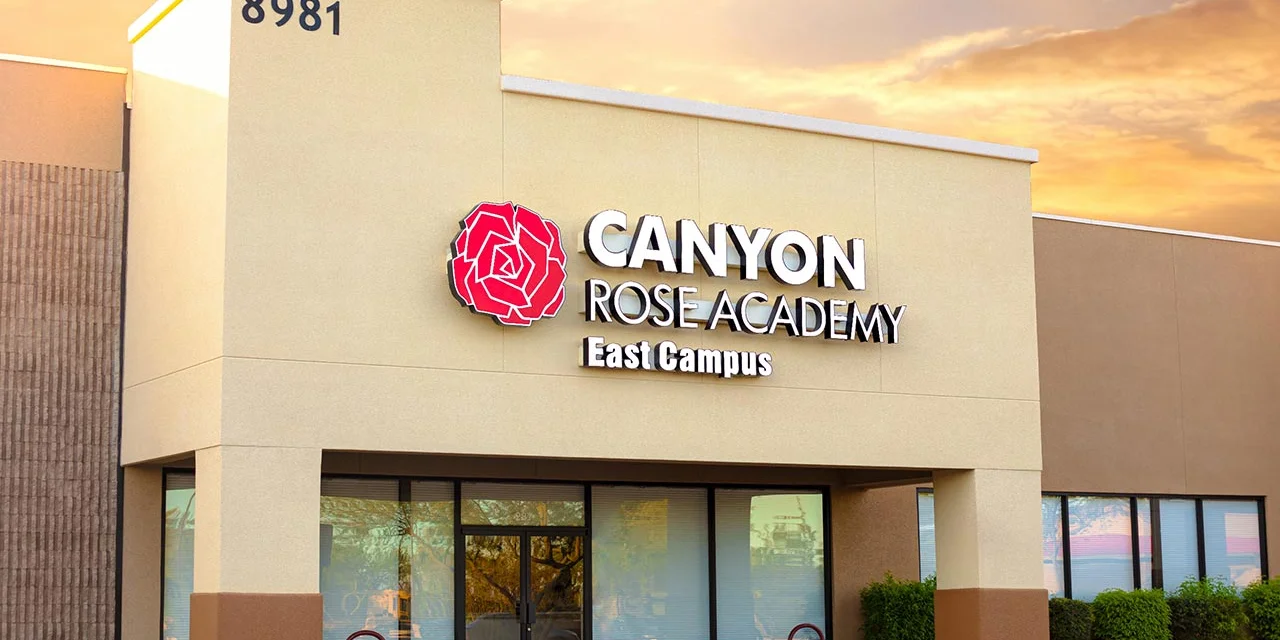Did you know that with a high school diploma, you’re likely to earn 40% more income than someone without one? Your chances of securing stable employment rise by 33% when you graduate high school (CareerOneStop). While it may seem daunting to complete a high school education, earning your high school diploma can open doors to high-paying career opportunities, ensuring long-term success.
In this guide, we’ll explore the significant benefits of earning a high school diploma. We’ll discuss the potential for economic growth, personal development, and social advancement with a high school credential, outlining the important life skills gained by students throughout their high school experience.
If you’ve gotten off track, there’s hope for on-time graduation with the help of the Rose Academies. We offer flexible credit recovery courses and fully transferable credits, so you’ll only take the essential classes needed to graduate high school.
To learn more about ensuring a better future with a Rose Academies high school education, explore our website now.
1. Economic Benefits of High School Diploma
Those with a high school diploma have access to better employment opportunities and higher income potential compared to high school dropouts.
Higher Income Potential
Statistics consistently show that individuals with a high school diploma earn significantly higher incomes than those without one. This valuable credential opens doors to higher-paying jobs and career opportunities that are often unattainable for those who have not completed high school education.
Better Employment Opportunities
Having a high school diploma can be the deciding factor in securing employment within a competitive job market. Employers view high school graduates as meeting the minimum education requirement, demonstrating a candidate’s ability to commit to and complete tasks efficiently.
Moreover, earning a high school diploma qualifies individuals for a broader range of well-paying job opportunities across various industries, providing a solid foundation for stable and lasting employment.
Financial Literacy Education
Earning a high school diploma often includes gaining foundational financial literacy skills, such as budgeting, saving, and understanding basic economic principles. These essential skills not only support personal financial stability but also prepare graduates for responsible financial decision-making in both personal and professional settings.
Entrepreneurial Opportunities
A high school diploma provides the educational foundation needed to pursue entrepreneurial ventures, offering critical skills in mathematics, communication, and problem-solving. Many successful entrepreneurs attribute their business acumen to the knowledge and experiences gained in high school, demonstrating how a diploma can serve as a launchpad for starting and growing a business.
2. Career Advancement & Competitiveness
Earning a high school diploma opens up a wide range of career opportunities, as high school graduates are equipped with essential technological and interpersonal skills needed to thrive in future careers. Job applicants with a high school diploma consistently stand out compared to those without this critical credential.
Competitiveness in Job Applications
When applying for jobs, individuals with a high school diploma are often preferred by employers over those without diplomas due to their proven ability to fulfill responsibilities. This academic achievement signals to potential employers that the individual is well-prepared for the complexities of the modern workplace.
Eligibility for Promotions
High school graduates are more likely to be considered for promotions. Employers view those with high school diplomas as competent, professional, and capable, considering them top candidates for leadership roles and advanced career opportunities.
Preparation for Specific Careers
Completing high school education equips students with the practical skills needed to effectively pursue specific career paths. Many career opportunities require a strong foundation in essential subjects such as basic mathematics, science, and communication skills, all of which are covered in high school curricula.
Networking Opportunities
High school provides valuable networking opportunities that can significantly influence future career prospects. It connects students with peers, teachers, and counselors who can offer guidance, support, and professional references during job searches and career development.
Technological Skills
High schools integrate technology into their curriculum, equipping students with critical technological skills needed to navigate computer systems, software, and advanced tools prevalent in today’s modern workplaces. These technology skills are essential for career readiness and competitiveness in the job market.
Pathways to Management & Leadership Roles
A high school diploma serves as an important stepping stone toward management and leadership positions, providing foundational skills in communication, teamwork, and critical thinking. Many employers prefer promoting high school graduates, viewing their educational achievement as a sign of reliability and leadership potential.
3. Educational Advancement
A high school diploma serves as a critical stepping stone for those pursuing higher education. Most colleges, universities, and trade schools require a high school diploma as a prerequisite for admission, making it an essential credential for academic and career success.
Pathway to Higher Education
Achieving a high school diploma is typically a mandatory requirement for entry into higher education institutions, including universities, colleges, and vocational training schools. This valuable diploma opens up opportunities for further education, allowing students to pursue a bachelor’s degree or higher and access advanced career opportunities in their chosen fields.
Preparation for College or Trade Schools
A high school education prepares students for the rigorous academic demands of college and technical schools. It develops essential skills such as critical thinking, problem-solving, and analytical abilities, which are crucial for success in higher education and career advancement.
Vocational Training & Certification Programs
A high school diploma is often a minimum requirement for enrollment in vocational training and certification programs, which provide specialized skills for high-demand careers. These programs offer practical, career-focused education, helping high school graduates quickly enter the workforce with marketable skills and enhanced earning potential.
4. Personal Development
Earning a high school diploma plays a crucial role in personal development, fostering personal growth, boosting students’ self-confidence, and equipping them with essential life skills needed for long-term success.
Development of Lifelong Skills
Throughout high school education, students gain valuable lifelong skills such as time management, organization, and effective communication. These critical skills are not only beneficial in personal life but also highly valued in professional settings, enhancing students’ ability to manage projects, lead teams, and thrive in diverse environments.
Self-Esteem & Confidence
Completing a high school diploma significantly boosts confidence and self-esteem. Graduates experience a profound sense of accomplishment, empowering them to set ambitious goals and pursue future achievements. This increased self-assurance is vital for personal and professional success, positively influencing all aspects of life and opening doors to new opportunities.
Critical Thinking & Problem Solving
A high school diploma signifies that graduates have developed critical thinking and problem-solving skills, which are essential for academic and career success. These valuable skills enable individuals to analyze situations effectively, make informed decisions, and adapt to challenges in both personal and professional environments.
Building Independence & Responsibility
Completing a high school education fosters independence and responsibility, as students learn to manage coursework, meet deadlines, and balance multiple priorities. These life skills contribute to personal growth and prepare graduates to handle adult responsibilities, from higher education to career settings.
5. Social & Community Benefits
Earning a high school diploma empowers individuals to make meaningful contributions to their communities, inspiring younger generations to complete their education and pursue success.
Contribution to Community
Graduates with a high school diploma are better equipped to actively contribute to their communities. They possess the education and skills needed to participate in community planning, take on leadership roles, and engage in volunteer opportunities. This involvement not only enhances personal growth but also strengthens community networks, fostering a continuous cycle of improvement and positive impact.
Setting a Positive Example
High school graduates set a powerful example for younger generations, demonstrating the value of education and persistence. Their accomplishments showcase the importance of earning a high school diploma, inspiring siblings, relatives, and community youth to set educational goals, stay in school, and achieve their own academic milestones.
6. Health & Well-Being
Earning a high school diploma offers significant health and well-being benefits, providing graduates with access to higher-paying jobs that enable them to secure health benefits and achieve financial stability. With reduced economic stress and improved access to preventative medical care, many high school graduates experience better health outcomes compared to those without a diploma.
Improved Health
High school diploma holders often enjoy more positive health outcomes than those without this important credential. By securing higher-paying employment, graduates can enroll in comprehensive health benefits, gaining access to preventative care that supports overall health and wellness.
Mental Health Considerations
Completing a high school diploma can significantly improve mental health. Graduates benefit from stable, full-time job opportunities, providing the economic stability needed to reduce stress and anxiety. Additionally, the social connections made in high school can lead to lasting emotional support networks, contributing to long-term mental well-being.
Overcoming Challenges to Earn a High School Diploma
While many students face significant challenges on the path to earning a high school diploma, high schools provide flexible learning options and robust support systems, teaching valuable time management skills to ensure long-term success.
Flexible Learning Options
Many high schools now offer flexible alternatives to traditional high school education, accommodating students’ unique life circumstances. Online schools, night classes, and alternative schooling programs provide accessible pathways for students to earn their high school diploma, regardless of personal challenges or unforeseen obstacles.
Support Systems
High schools often provide comprehensive support systems, including tutoring, counseling, and mentorship programs, to help students overcome academic and personal obstacles on their journey to earning a high school diploma. These support resources are essential for student success, particularly for those who struggle within traditional learning environments and need additional guidance to achieve their educational goals.
Time Management
While balancing coursework, extracurricular activities, and personal commitments can be challenging, high school education offers a valuable opportunity to develop essential time management skills. These skills not only support academic achievement but also prepare students for success in future careers, helping them effectively manage responsibilities and maintain a healthy work-life balance.
Support for Non-Traditional Students
High schools increasingly offer support for non-traditional students, including working students, young parents, and those with unique scheduling needs. Flexible learning options such as online courses, night classes, and alternative education programs help these students earn a high school diploma while balancing life responsibilities.
Programs for Students with Disabilities
Many high schools provide specialized programs and support services to help students with disabilities achieve their high school diploma. These inclusive education initiatives include individualized education plans (IEPs), accommodations, and tailored teaching methods that promote academic success for all learners.
Addressing Learning Gaps & Remedial Education
Some high schools offer remedial education programs to address learning gaps and support students who may be struggling academically. Through tutoring, summer school, and personalized learning plans, students can catch up on missed skills, ensuring they stay on track to earn their high school diploma.
Common Questions & Concerns on Graduating High School
High school diplomas enhance career opportunities for students, equipping them with the skills necessary to succeed in the workforce.
Is a High School Diploma Worth It?
While success can manifest in many forms, earning a high school diploma significantly enhances career opportunities, increases earning potential, and broadens access to further education. It serves as a critical foundation for future success, influencing many aspects of life, from financial stability to personal growth and community impact.
Do You Need a Diploma to Be Successful?
While there are exceptions of individuals who have achieved success without completing high school, these cases are rare. A high school diploma is generally essential for long-term success and stability, offering opportunities that are otherwise unattainable. Whether it’s pursuing higher education, securing higher-paying job prospects, or building a stable career path, a high school diploma remains a vital stepping stone toward achieving personal and professional goals.
How Does A High School Diploma Compare to a GED?
While both a high school diploma and a GED (General Educational Development) demonstrate basic educational achievement, a high school diploma often provides greater advantages in career opportunities, earning potential, and access to higher education.
Many employers and colleges prefer high school graduates, as a diploma reflects consistent education, important life skills, and social experiences gained through traditional high school education.
What Are The Alternatives to A High School Diploma?
For those unable to earn a high school diploma, alternatives include the GED, adult education programs, vocational training, and trade schools. While these options can provide valuable education and job opportunities, a high school diploma remains the most widely recognized credential, offering broader access to higher education, higher-paying job prospects, and long-term career growth.
Take the First Step Toward Your Future with Rose Academies
A high school diploma is more than just a certificate—it’s a powerful gateway to a successful future. Completing high school education equips students with essential skills to thrive in the workforce, unlock higher-paying job opportunities, and achieve both professional and personal growth.
Ready to secure a brighter future? At Rose Academies, we provide flexible learning options and personalized support to help you earn your high school diploma and reach your goals. Explore our programs today and take the first step toward a lifetime of success.
Sources
“A high school diploma can launch you to a bright future.” CareerOneStop. U.S. Department of Labor Employment and Training Administration. https://www.careeronestop.org/GetMyFuture/Education/finish-high-school.aspx#:~:text=Earnings.,when%20you%20finish%20high%20school. Accessed 11 July 2024.













